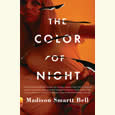The Milk of Resistance
In an essay in The New York Times poet Khaled Mattawa locates an unusual source of Libyan liberty
April 27, 2011 Khaled Mattawa was five years old when Qaddafi seized power in Libya. In an op-ed piece for The New York Times, Mattawa recalls the unlikely role a dairy plant in his hometown of Misurata has played in the resistance against Qaddafi, and why Libyan forces recently targeted it in a bombing raid:
In the early 2000s, the Naseem plant in Misurata tried to change that. At the time, Colonel Qaddafi had begun to move Libya toward a market economy, but most businesses were handed over to his sons and acolytes, who weren’t under much pressure to succeed. As a family business, Naseem was different, and its milk was good. In Benghazi and all across Libya we started to buy Naseem milk, then plain and flavored yogurt, eventually even ice cream.
No one in Libya was surprised that such commercial success took place in Misurata. It is a hard-working town; people there rise with the dawn. More recently, to block Colonel Qaddafi’s tanks, Misurata’s fighters have filled shipping containers with sand and parked them across the city’s main boulevard. It is also no surprise that Colonel Qaddafi went after that city, and its factory, as a symbol of resistance, and a sign of how he has failed as a leader.
Read the full essay here. Read a poem by Mattawa about the Libyan resistance here.
For more updates on Tennessee authors, please visit Chapter 16‘s News & Notes page, here.

